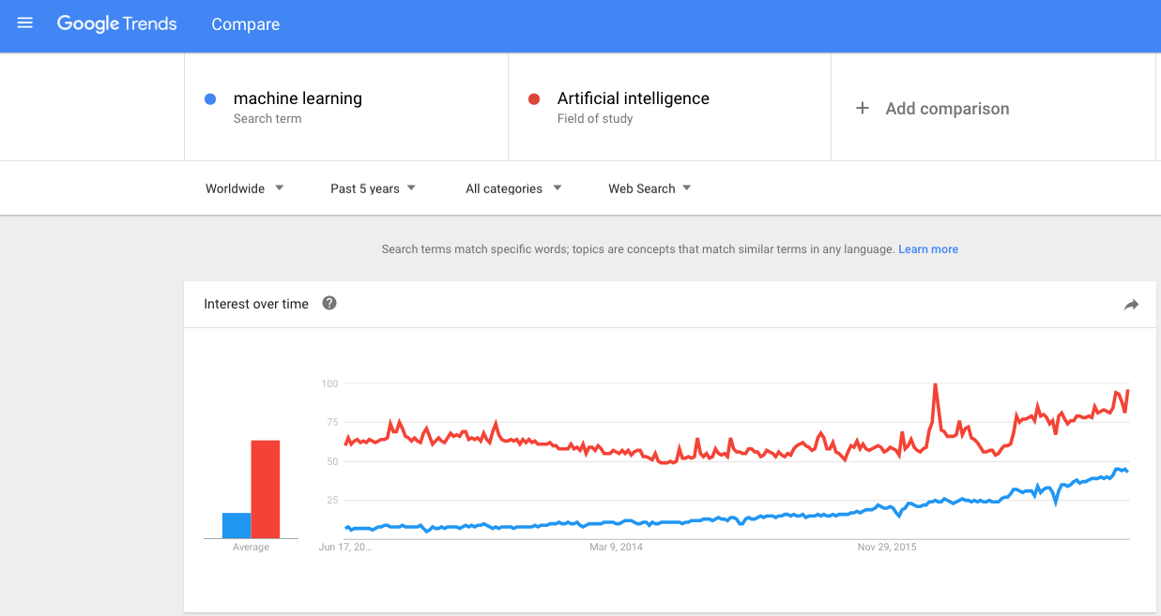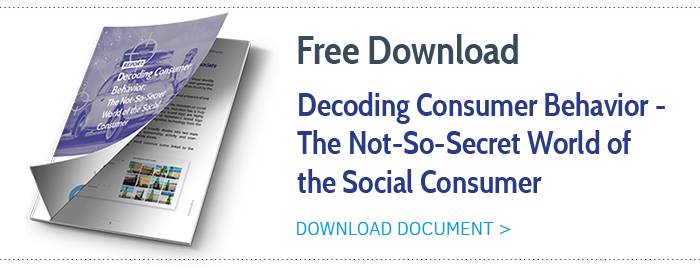In the past 5 years, we’ve seen a huge increase in the marketing world around artificial intelligence and in particular one of its subsets, machine learning, which you can see from Google Trends below is steadily increasing:
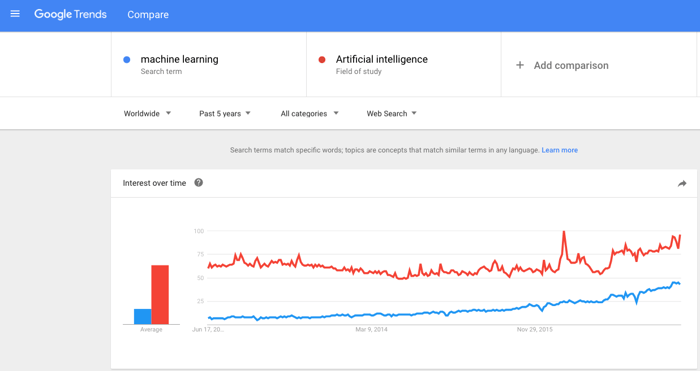
We all know ‘something is happening’, but what does it mean for you as a marketer?
Well, that is what I’ve been exploring through connecting with some of the most interesting people in this space and there is a lot happening over on Twitter:
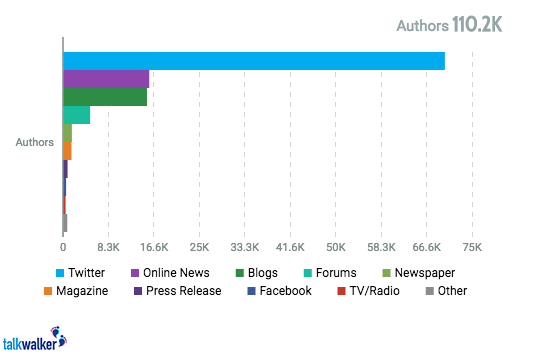
In my experience people are responsive and keen to chat about the applications of these approaches, as you will see below, so know there is help at hand if you want to go further.
Note, if you’d like a more technical version of what machine learning and deep learning is then check out this blog from Liesa at Talkwalker.
What is machine learning?
“The powerhouse organizations of the Internet era, which include Google and Amazon . . . have business models that hinge on predictive models based on machine learning.”
—Professor Vasant Dhar, Stern School of Business, New York University
Machine learning is a “computers ability to learn without being explicitly programmed.” But it may well help for you to think of machine learning in terms of predictive analytics.
And this is where to begin if you want to understand machine learning as a marketer, with this book...
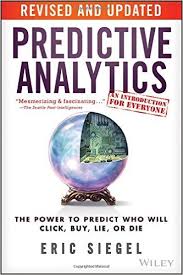
As predictive analytics specialist Eric Siegel says, “Learning how to predict from data is sometimes called machine learning—but it turns out this is mostly an academic term you find used within research labs, conference papers, and university courses... These arenas are a priceless wellspring, but they aren’t where the rubber hits the road... in the real-world usage of machine learning to predict—it’s called something else... Predictive analytics (PA)—Technology that learns from experience (data) to predict the future behavior of individuals in order to drive better decisions.”
And if you'd like a more musical explanation, here's Eric using the medium of rap to try and explain his thoughts...
Eric Siegel - Twitter Followers: 3591
As marketers we all know that a customer’s journey is across a multitude of touchpoints, and machine learning enables patterns to be discovered and pathways to be altered in new ways.
Next we come to Dan Faggella, Founder of Tech Emergence who specialize in AI market research and as with Eric above, Dan is truly in the middle of conversations around machine learning (so don’t think it is all about ‘follower count’).
Dan Faggella - Twitter Followers: 1977
Dan says (basing it on his survey of 50 executives of AI marketing companies) “The biggest near-term impact will be for large firms that sell primarily online and at high volume, here's why:
- Data collection: Ability to quantify customer touch points across all marketing activities.
- Transaction volume: Reaching the marketing “goal” more often helps to train marketing algorithms and provide better predictions and recommendations.
- Uniformity: Businesses that pool their marketing and sales data into a single stream are more likely to succeed in applying AI.”
In my exploration for this article I came across many ways of getting under the hood to explain machine learning, but one of the most interesting was on Quora from Pararth Shah, an ML Enthusiast - who explains how it works through using the example of mango purchases, which paints a picture of how an algorithm can learn through the process of gaining more information each time it goes through a loop, changing the way it processes future purchases. Here’s the fascinating thread that will make you look at AI (and mangoes) in a whole new light.
Pararth Shah - Twitter Followers: 239
Are you thinking, maybe you should wait?
Well, Dan Olley said last year: "If CIOs invested in machine learning three years ago, they would have wasted their money. But if they wait another three years, they will never catch up."
When you combine this with the perspective of IBM’s CEO Ginni Rometty, “Regardless of role, every industry will be disrupted” you can see how machine learning and cognitive systems in business are being backed.
And as you may expect, USA based authors are dominating the conversation online:
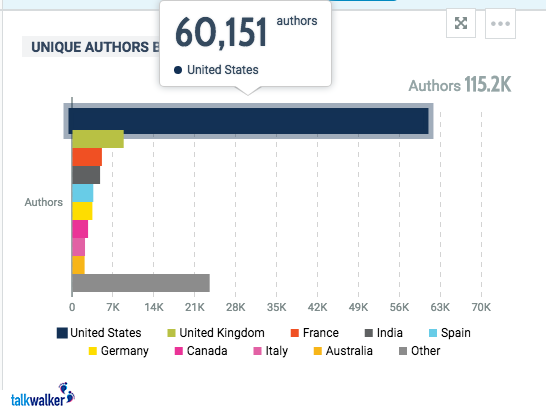
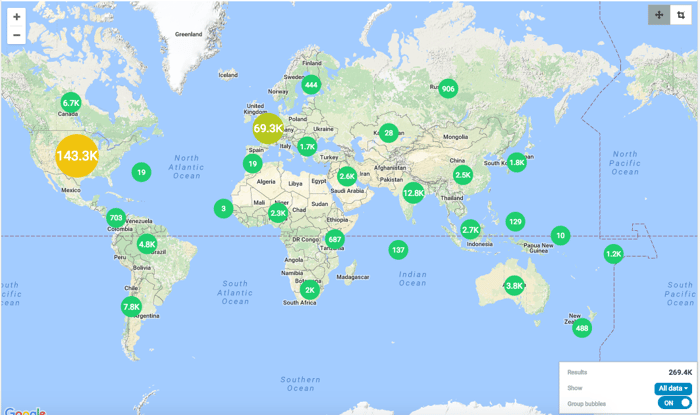
But it is tricky for smaller businesses to get started, as Dan Faggella told me, “SMBs and B2B businesses will have a much harder time adopting AI in any robust or meaningful way in the next 2-3 years, but big online players like WayFair, OverStock.com, etc (and even their smaller competitors) will benefit greatly.”
How then can machine learning be used in your marketing?
In one word, the most obvious way is going to be ‘personalization’.
I reached out to Takt's Chief Data Science Officer Mike Tamir, who summed it up as follows…
"Traditionally personalized marketing started with message and then looked for the right audience to match with the message. Advances in machine learning have enabled companies like Takt to turn that model on its head. Now ML driven marketing can start with the customer: her history, interests, current context, and journey with the product before selecting the right message to drive engagement at the right time. This is an exciting shift that will continue to transform the field."
Mike Tamir - Twitter Followers: 16.7K
Then as Big Data expert, Ronald van Loon told me, "For marketers, machine learning can be an opportunity to redirect personalization towards the customer in real-time, and optimize the customer experience across all channels based on their behaviors, habits, and preferences. Companies like Amazon and Netflix are setting trends for personalization based on predictive patterns, and providing responsive, interactive, and engaging experiences for their customers to maintain loyalty and develop innovative ways to retain them.
Machine learning as an advantageous marketing tool will only solidify its value going into the future as it’s adopted across more industries to transform business models through automation of processes, customer experience applications, and enabling new levels of interaction between businesses and customers. "
Ronald van Loon - Twitter Followers: 155K
Next, I called upon Beatriz Montoya, Marketing Channels Director at Simply Business for her viewpoint, and she said, “At Simply Business we are already reaping the benefits of machine learning via our attribution model, segmentation and digital marketing activity. And with a new Head of AI on the way, we've got big plans for the future - including using it to drive a content recommendation tool and personalisation of our site.” The fact an insurance business has a new Head of AI should give you some idea of the weight they put upon this approach.
Reaffirming Eric Siegel’s perspective, when I asked Kirk Borne, the Principal Data Scientist at Booz Allen Hamilton, he said:
“The number one hottest trend (where machine learning-based marketing is going next) is behavioral analytics, including both predictive and prescriptive analytics modeling. Understanding what motivates a consumer, how a consumer signals their intentions and interests, what turns off a consumer, what conditions induce a consumer to make a decision, etc. are all part of behavioral sciences. Predictive marketing models help to answer the question "what is the consumer likely to do next?", and prescriptive marketing models help to answer the question "how can we achieve a better, optimal outcome in this situation, hopefully producing a win-win for the consumer and for the business?" To apply these concepts successfully within marketing requires comprehensive (360 view) data sources, ML model-building capabilities, and an agile analytics environment that is dynamically responsive to changing conditions.”
Kirk Borne - Twitter Followers: 210K
Kirk went on to say, “Let's not forget the power of influencer marketing also. ML can help marketers identify the key influencers within their market space. Then, by engaging directly with those individuals, the impact of the marketer's campaigns is amplified to even wider, more targeted audiences than could otherwise be reached.”
How Talkwalker are using machine learning
"One of the most exciting elements of machine learning and even 'deep learning' is that the idea of continuous improvement is essentially already built in. We’re using AI in a couple of different ways. One is to power our image recognition capabilities which let brands identify and analyze the content and context of images - the logos that appear in a scene, whether the picture is at a bar or in a car and even the objects that appear in a photo.
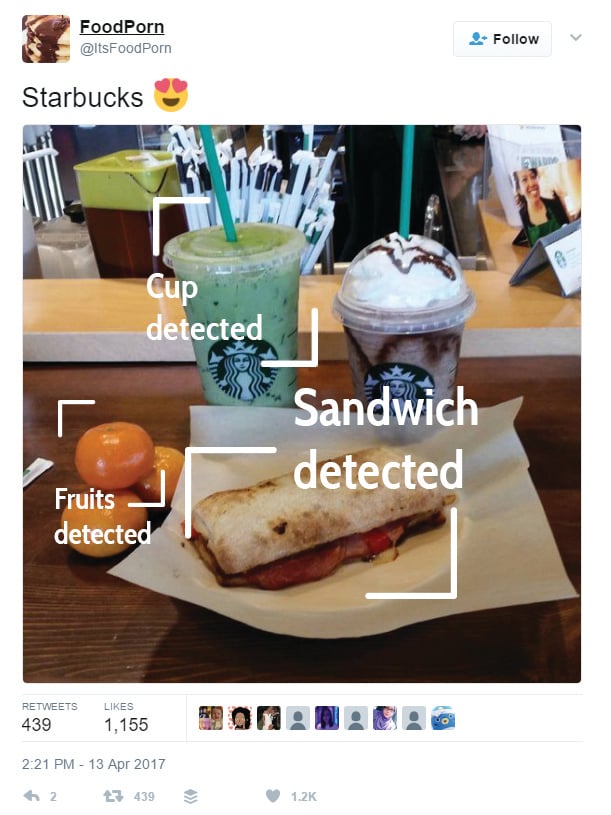
The second is to improve our sentiment analysis capabilities so they can go beyond the prevailing “keyword scoring” based method to a more holistic method of analysis that is able to understand the full context of phrases and sentences, with an ability to even understand basic forms of sarcasm. What’s great is that the incorporation of the AI elements means that almost as a matter of course, our technology will continue to improve as the more it’s used, the more we’ll be able to train our systems. It requires the guiding hand of expert data scientists of course, but that potential for constant progress makes the possibilities really exciting."

A word of caution
I reached out to Roydell Clarke for this article, and his approach was very different. He says, “Machine learning is too important to be left in hands of a few corporations. We are all obligated to find ways to train with smaller datasets that can be generalized to new examples. We have to
do this if we are to democratise machine learning.” In one way, this reinforces the perspective that ‘something big’ is happening. As the world map belows shows, sentiment towards artificial intelligence is far from being overwhelmingly positive.
Roydell Clarke - Twitter Followers: 1041

Finally...
In my gathering of perspectives, I have focused on only a part of the practicality of machine learning. And it was David Amerland’s stance I wanted to leave you with:
"Machine learning is being baked into everything because it is the only viable way to get a handle on the volume of Big Data that is overwhelming every business. This presents marketers with both a challenge and an opportunity. The challenge is fairly simple: understand what machine learning has to offer in the first instance. The opportunity is humongous: articulate what you want to extract from the data you harvest and use machine learning tools to help you do it. It is ironic that it is taking intelligent programming to help humans do what humans do best: connect with one another in meaningful ways that give real transactional value to every relational exchange they engage in."
David Amerland - Twitter Followers: 18.8K
If you are tempted to dive deeper into this whole area yourself, I will leave you with one person’s name:
Jason Brownlee - Twitter Followers: 10.8K
He was my favourite author around ‘how to teach’ the more tech end of machine learning, and someone who seems very supportive in getting newbies started.
All in all, a huge amount to explore but I hope this article has opened your eyes as to a change that is happening in some of the largest marketing departments around the world.
Thanks to Martin for the whirlwind tour of artificial intelligence and machine learning for marketers. For more information on using AI-powered social listening for your business, click for a demo of our AI Engine.
References
- Source: Predictive Analytics: The Power to Predict Who Will Click, Buy, Lie, or Die by Eric Siegel
- Arthur Samuel - https://en.wikipedia.org/wiki/Arthur_Samuel
- Tech Emergence on the Machine Learning Landscape https://www.techemergence.com/machine-learning-marketing
- AI and Mangoes https://www.quora.com/How-do-you-explain-Machine-Learning-and-Data-Mining-to-non-Computer-Science-people
- Kirk Borne on why CIOs need to invest in Machine Learning http://www.cio.com/article/3061713/leadership-management/why-its-time-for-cios-to-invest-in-machine-learning.html
- IBM's view https://www.facebook.com/IBM/posts/1048529698570645

